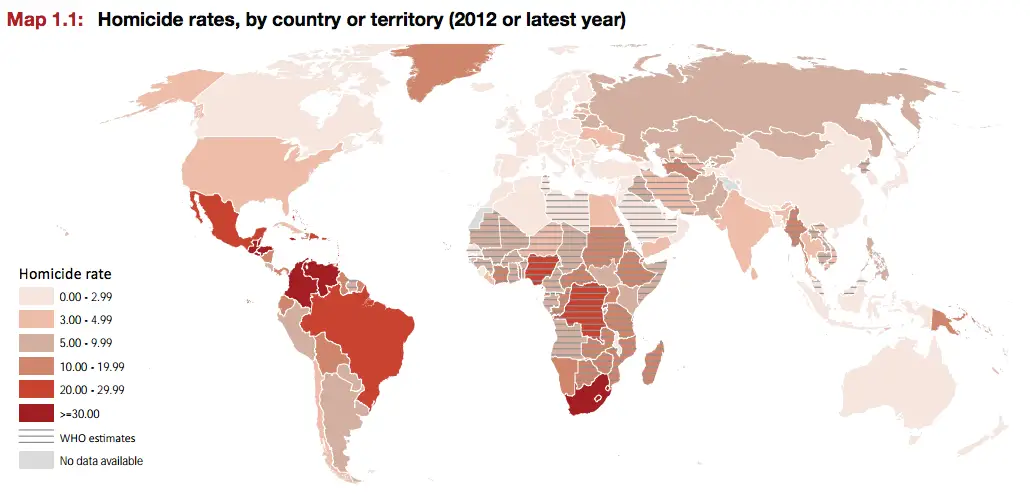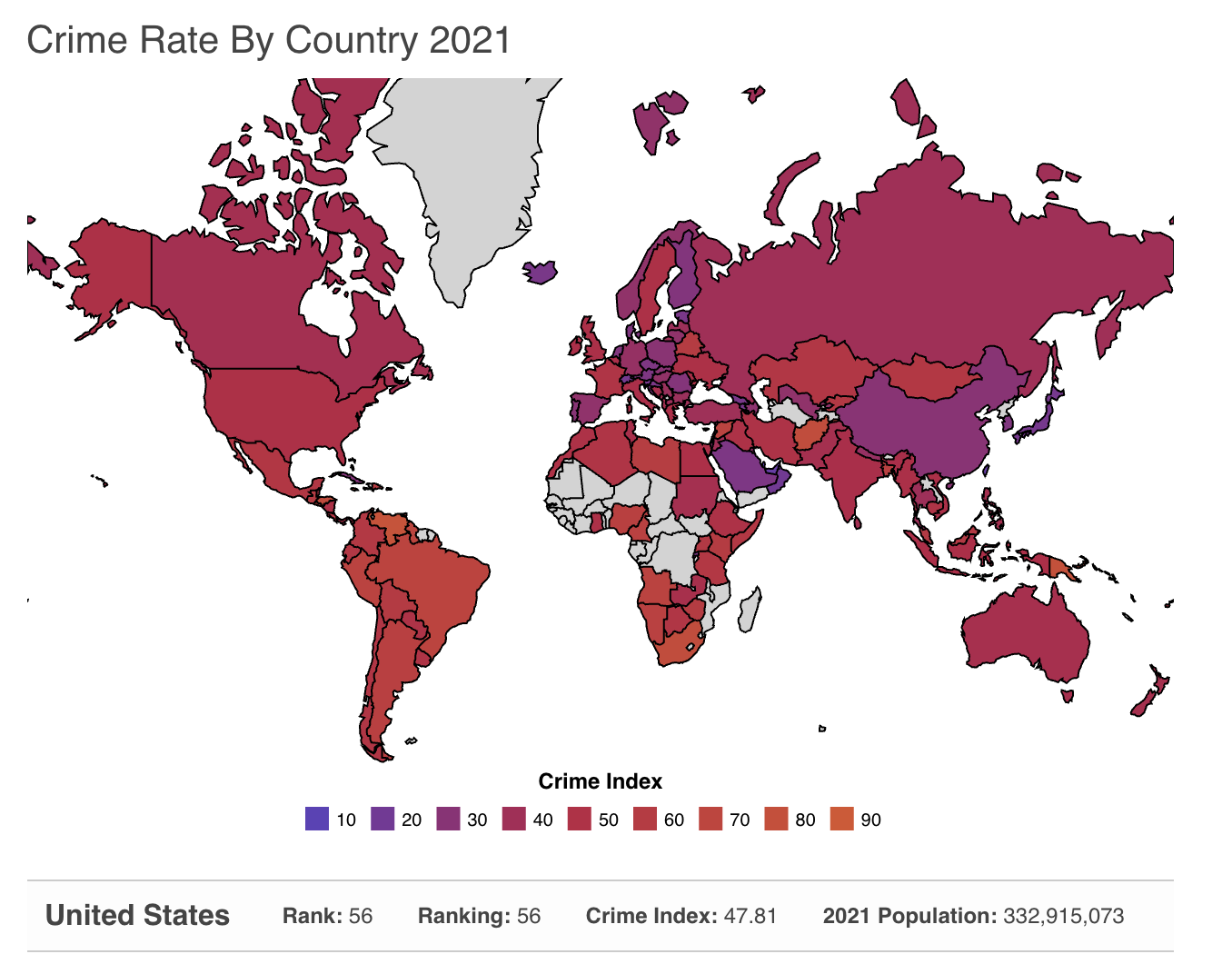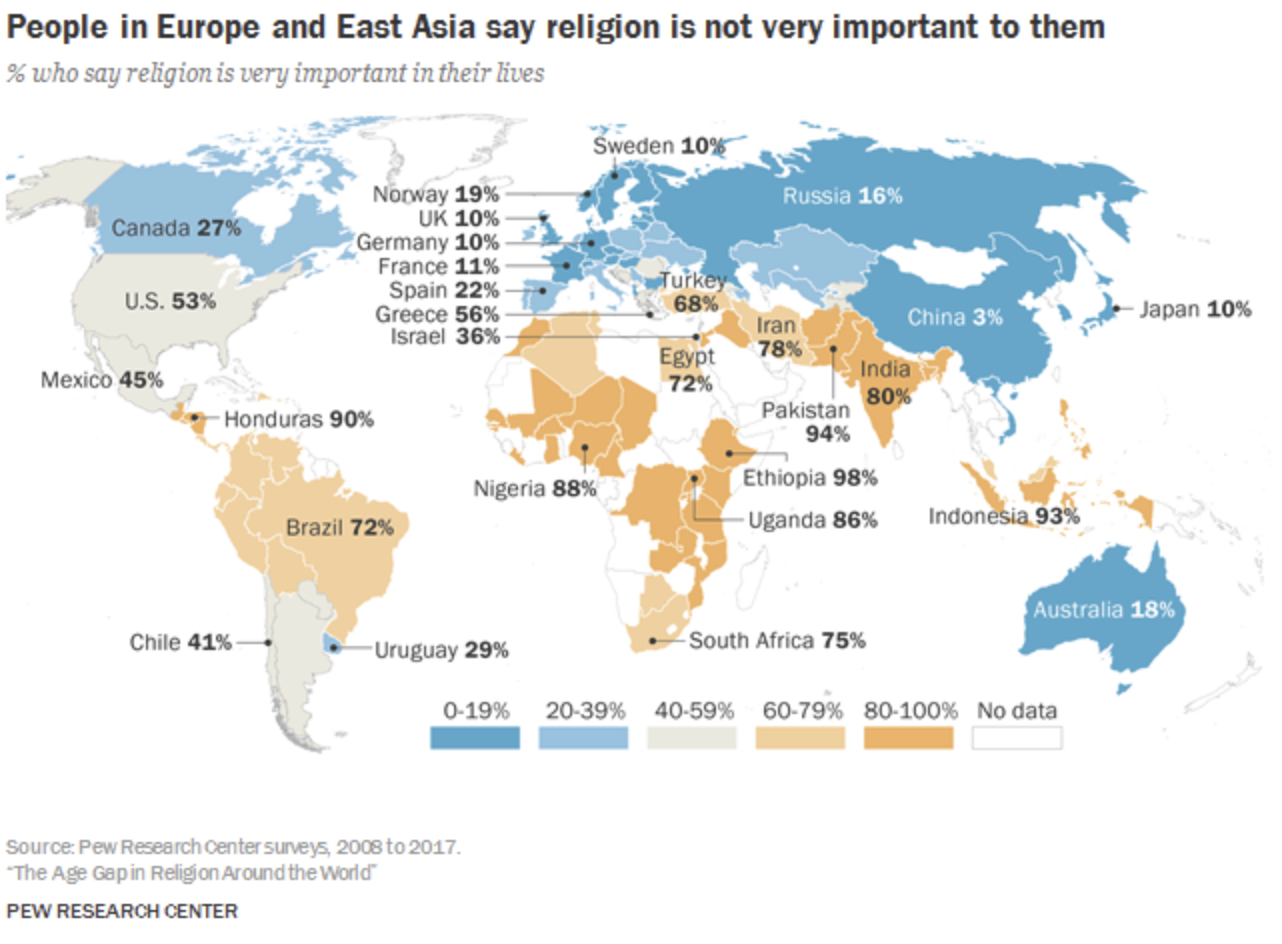« Miracles and Big Data Spirit »
Morals and God
Central Question:
Do we need God to be moral?
Why this is important to me:
I want to be moral and I want those around me to be moral. I am willing to do anything to assure my community is a good community. My religious background has taught me that hope in God provides the best moral compass. In fact, that background taught me that if I leave religion then I would perform many immoral acts.
Non Religious nations have less crime
The science of ethics and morality shows that people are ethical by nature. This can be seen in the below charts as we measure non-religious countries and homicide and crime rates. The least religious nations actually have less crime than those with religion. I understand that there are many factors involved in these stats. That said, if religion is truly needed to be moral then these charts should make it very obvious.
 https://www.businessinsider.com/here-are-the-homicide-rates-for-countries-around-the-world-2014-11
https://www.businessinsider.com/here-are-the-homicide-rates-for-countries-around-the-world-2014-11
 https://worldpopulationreview.com/country-rankings/crime-rate-by-country
https://worldpopulationreview.com/country-rankings/crime-rate-by-country
Science: our morals are by evolution NOT religion
The brain areas that are consistently involved when humans reason about moral issues have been investigated.[24] The neural network underlying moral decisions overlaps with the network pertaining to representing others’ intentions (i.e., theory of mind) and the network pertaining to representing others’ (vicariously experienced) emotional states (i.e., empathy). This supports the notion that moral reasoning is related to both seeing things from other persons’ points of view and to grasping others’ feelings. These results provide evidence that the neural network underlying moral decisions is probably domain-global (i.e., there might be no such things as a “moral module” in the human brain) and might be dissociable into cognitive and affective sub-systems. An essential, shared component of moral judgment involves the capacity to detect morally salient content within a given social context. Recent research implicated the salience network in this initial detection of moral content.[25] The salience network responds to behaviourally salient events,[26][27] and may be critical to modulate downstream default and frontal control network interactions in the service of complex moral reasoning and decision-making processes. This suggest that moral cognition involves both bottom-up and top-down attentional processes, mediated by discrete large-scale brain networks and their interactions.
https://en.wikipedia.org/wiki/Science_of_morality
The 7 Universal Morals
Anthropologists are looking at different societies throughout the world to find common morals. Specifically, values that are considered moral in most places and not immoral anywhere. No matter the religion or culture, these values are considered moral. Each of these morals assist the above claims where we are programmed to help a community
https://www.ox.ac.uk/news/2019-02-11-seven-moral-rules-found-all-around-world
- Help your family
- Help your group
- Return favors
- Be brave
- Defer to superiors
- Divide resources fairly, and
- Respect others’ property
« Miracles and Big Data Spirit »
Letter Sections
- Letter
- Preface: Belief Change Bias
- Abuse And Oppression
- Bible Accuracy
- Trust In God
